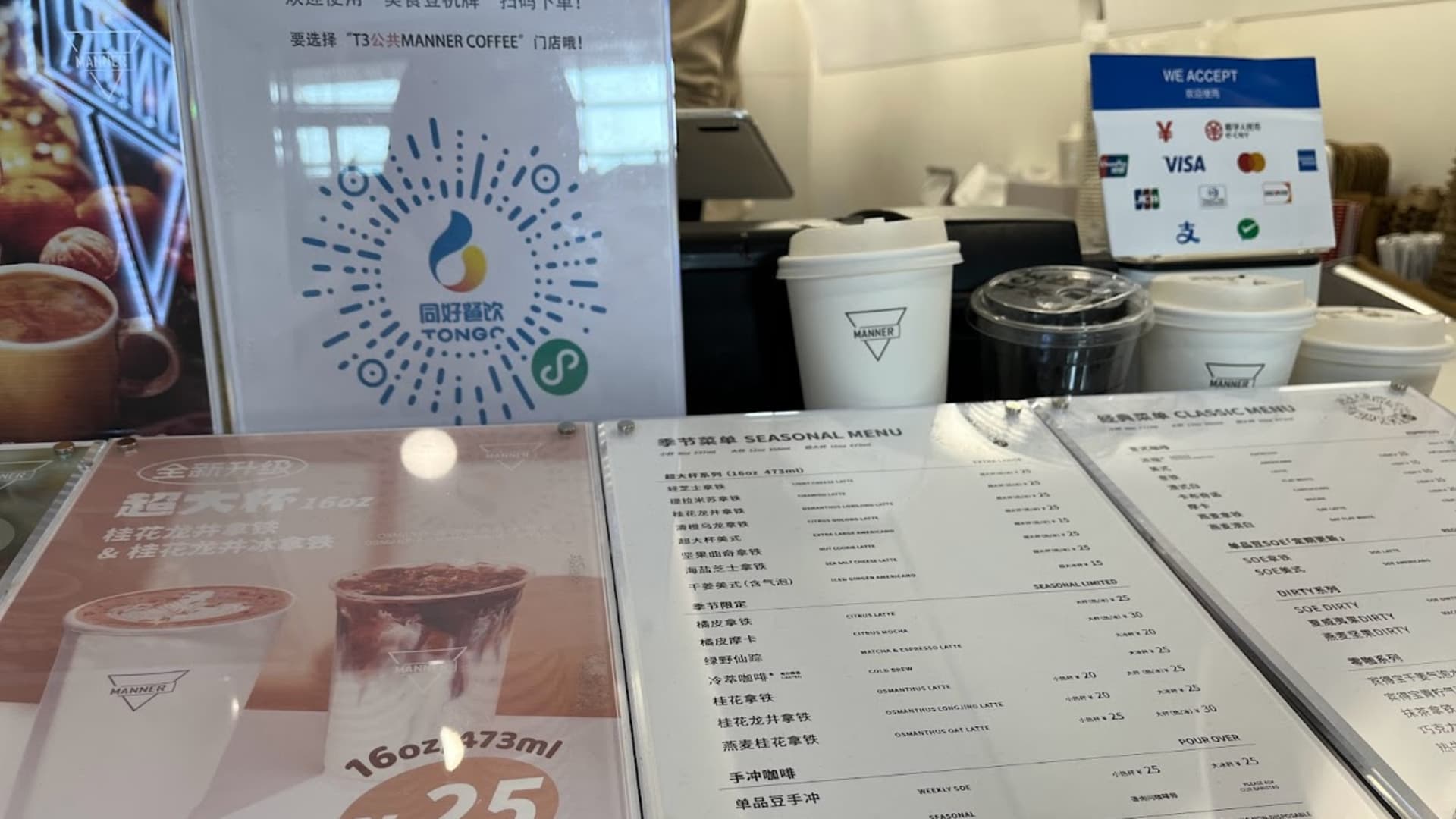BEIJING — China is encouraging banks and local businesses to accept foreign bank cards and is considering other steps to make mobile pay for international visitors even easier, said Zhang Qingsong, deputy governor of the People’s Bank of China.
“Banks and vendors (such as hotels, restaurants, department stores and even coffee shops) are encouraged to accept foreign bankcards,” Zhang said.
His written comments, exclusive to CNBC, come as Beijing has stepped up efforts to encourage visits from foreign tourists and business people. In the last few months, authorities have enacted visa-free travel policies for residents of several European and Southeast Asian countries — after stringent border controls during the pandemic.
Mobile pay took off in China in the last several years. But while it’s been convenient for locals to scan a QR code with a smartphone to pay, financial system restrictions have also meant foreigners often found it difficult to make payments. Shopping malls have increasingly preferred not to accept foreign credit cards.
But that’s started to change in recent months.
Last summer, the two dominant mobile pay apps WeChat and AliPay started allowing verified users to connect their international credit cards — such as those from Visa. Tencent owns WeChat, while AliPay is operated by Alibaba affiliate Ant Group.
“We are fully aware that foreign visitors care very much about their privacy,” Zhang said “We take this issue seriously and have put in place measures for information protection.”
“Now, when using Alipay or WeChat Pay, foreign visitors do not need to provide ID information if their total annual transaction volume is under $500,” he said. “It is estimated that over 80% transactions are below this threshold. We are also looking at the possibility of raising the $500 threshold in the future.”
Zhang and other officials attended an event Monday at Beijing Capital Airport to formally open a payments service center for visiting foreigners.
While their public remarks mentioned the digital yuan, they focused on discussing the availability of cash currency exchange, greater acceptance of overseas cards and more mobile pay support.
The number of travelers in and out of mainland China has “continued to improve but both remained below 2019 levels,” Visa executives said on an earnings call in late January, according to a FactSet transcript.
Foreign financial services businesses have also started to see improved access to China, after years of waiting during which international companies criticized Beijing for favoring domestic players until they grew large enough.
Mastercard in November announced its joint venture in China received approval from the PBOC to begin processing domestic payments. The venture waited nearly four years since its application to begin preparations was approved in principle.
Zhang said China’s plan for supporting foreigners’ payments in the country would focus on allowing card transactions for large payments and mobile pay for smaller amounts.
Users of 13 foreign mobile wallet apps can also directly use QR payment codes in China, Zhang claimed, without naming the apps.
“At the same time cash is always available and accepted,” he said.
Ant Group in September said users of 10 major mobile payment apps in countries such as Singapore, South Korea and Thailand could use the same apps to scan AliPay QR payment codes in mainland China — a product the company calls Alipay+.
